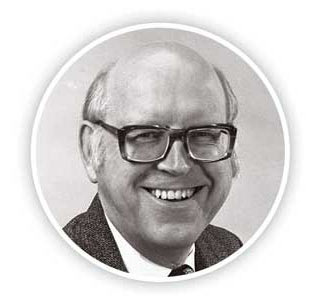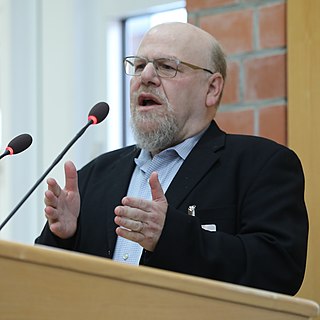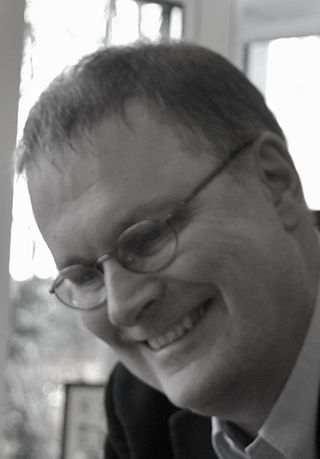Related Research Articles

Douglas Bruce Lenat was an American computer scientist and researcher in artificial intelligence who was the founder and CEO of Cycorp, Inc. in Austin, Texas.

Allen Newell was an American researcher in computer science and cognitive psychology at the RAND Corporation and at Carnegie Mellon University's School of Computer Science, Tepper School of Business, and Department of Psychology. He contributed to the Information Processing Language (1956) and two of the earliest AI programs, the Logic Theorist (1956) and the General Problem Solver (1957). He was awarded the ACM's A.M. Turing Award along with Herbert A. Simon in 1975 for their contributions to artificial intelligence and the psychology of human cognition.
Michael Irwin Jordan is an American scientist, professor at the University of California, Berkeley, research scientist at the Inria Paris, and researcher in machine learning, statistics, and artificial intelligence.
Aravind Krishna Joshi was the Henry Salvatori Professor of Computer and Cognitive Science in the computer science department of the University of Pennsylvania. Joshi defined the tree-adjoining grammar formalism which is often used in computational linguistics and natural language processing.

Deborah Louise McGuinness is an American computer scientist and researcher at Rensselaer Polytechnic Institute (RPI). She is a professor of Computer, Cognitive and Web Sciences, Industrial and Systems Engineering, and an endowed chair in the Tetherless World Constellation, a multidisciplinary research institution within RPI that focuses on the study of theories, methods and applications of the World Wide Web. Her fields of expertise include interdisciplinary data integration, artificial intelligence, specifically in knowledge representation and reasoning, description logics, the semantic web, explanation, and trust.

James Alexander Hendler is an artificial intelligence researcher at Rensselaer Polytechnic Institute, United States, and one of the originators of the Semantic Web. He is a Fellow of the National Academy of Public Administration.

Sebastian Thrun is a German-American entrepreneur, educator, and computer scientist. He is CEO of Kitty Hawk Corporation, and chairman and co-founder of Udacity. Before that, he was a Google VP and Fellow, a Professor of Computer Science at Stanford University, and before that at Carnegie Mellon University. At Google, he founded Google X and Google's self-driving car team. He is also an adjunct professor at Stanford University and at Georgia Tech.
Daniel Gureasko Bobrow was an American computer scientist who created an oft-cited artificial intelligence program STUDENT, with which he earned his PhD., worked at BBN Technologies (BBN), then was a Research Fellow in the Intelligent Systems Laboratory of the Palo Alto Research Center.
Ekaterini Panagiotou Sycara is a Greek computer scientist. She is an Edward Fredkin Research Professor of Robotics in the Robotics Institute, School of Computer Science at Carnegie Mellon University internationally known for her research in artificial intelligence, particularly in the fields of negotiation, autonomous agents and multi-agent systems. She directs the Advanced Agent-Robotics Technology Lab at Robotics Institute, Carnegie Mellon University. She also serves as academic advisor for PhD students at both Robotics Institute and Tepper School of Business.
John E. Laird is a computer scientist who, created the Soar cognitive architecture at Carnegie Mellon University with Paul Rosenbloom and Allen Newell. Laird is a professor in the Computer Science and Engineering Division of the Electrical Engineering and Computer Science Department of the University of Michigan.

Manuela Maria Veloso is the Head of J.P. Morgan AI Research & Herbert A. Simon University Professor Emeritus in the School of Computer Science at Carnegie Mellon University, where she was previously Head of the Machine Learning Department. She served as president of Association for the Advancement of Artificial Intelligence (AAAI) until 2014, and the co-founder and a Past President of the RoboCup Federation. She is a fellow of AAAI, Institute of Electrical and Electronics Engineers (IEEE), American Association for the Advancement of Science (AAAS), and Association for Computing Machinery (ACM). She is an international expert in artificial intelligence and robotics.
Pierre Baldi is a distinguished professor of computer science at University of California Irvine and the director of its Institute for Genomics and Bioinformatics.
David Leigh Waltz was a computer scientist who made significant contributions in several areas of artificial intelligence, including constraint satisfaction, case-based reasoning and the application of massively parallel computation to AI problems. He held positions in academia and industry and at the time of his death, was a professor of Computer Science at Columbia University where he directed the Center for Computational Learning Systems.
John Matthew Hollerbach is a professor of computer science and research professor of mechanical engineering at the University of Utah. He is the editor of The International Journal of Robotics Research, a Senior Editor of Presence: Teleoperators & Virtual Environments, and a Governing Board member of the electronic journal Haptics-e.
Muhammad Afzal Upal is a writer and a cognitive scientist with contributions to cognitive science of religion, machine learning for planning, and agent-based social simulation.
Henry A. Kautz is a computer scientist, Founding Director of Institute for Data Science and Professor at University of Rochester. He is interested in knowledge representation, artificial intelligence, data science and pervasive computing.

Peter Stone is an American computer scientist who holds the Truchard Foundation Chair of Computer Science at The University of Texas at Austin. He is also Chief Scientist of Sony AI, an Alfred P. Sloan Research Fellow, Guggenheim Fellow, AAAI Fellow, IEEE Fellow, AAAS Fellow, ACM Fellow, and Fulbright Scholar.

Thomas G. Dietterich is emeritus professor of computer science at Oregon State University. He is one of the pioneers of the field of machine learning. He served as executive editor of Machine Learning (journal) (1992–98) and helped co-found the Journal of Machine Learning Research. In response to the media's attention on the dangers of artificial intelligence, Dietterich has been quoted for an academic perspective to a broad range of media outlets including National Public Radio, Business Insider, Microsoft Research, CNET, and The Wall Street Journal.

Michael John Wooldridge is a professor of computer science at the University of Oxford. His main research interests is in multi-agent systems, and in particular, in the computational theory aspects of rational action in systems composed of multiple self-interested agents. His work is characterised by the use of techniques from computational logic, game theory, and social choice theory.
Johan de Kleer is a computer scientist working as a Research Fellow at Xerox PARC.
References
- ↑ "Benjamin Kuipers' home page". Benjamin Kuipers. Retrieved 30 November 2012.
- ↑ Kuipers, Benjamin (2001). "Qualitative Simulation". Artificial Intelligence. 29 (3): 289–338. doi:10.1016/0004-3702(86)90073-1.
- 1 2 "Benjamin Kuipers' Bio". Benjamin Kuipers. Retrieved 30 November 2012.
- ↑ "Current AAAI Fellows". American Association for the Advancement of Science. Retrieved 30 November 2012.
- ↑ "AAAS - 2012 Fellows". American Association for the Advancement of Science. November 2012. Archived from the original on 23 March 2013. Retrieved 30 November 2012.
- ↑ "Why don't I take military funding?s". Benjamin Kuipers. Retrieved 22 November 2011.
- ↑ Google Scholar profile